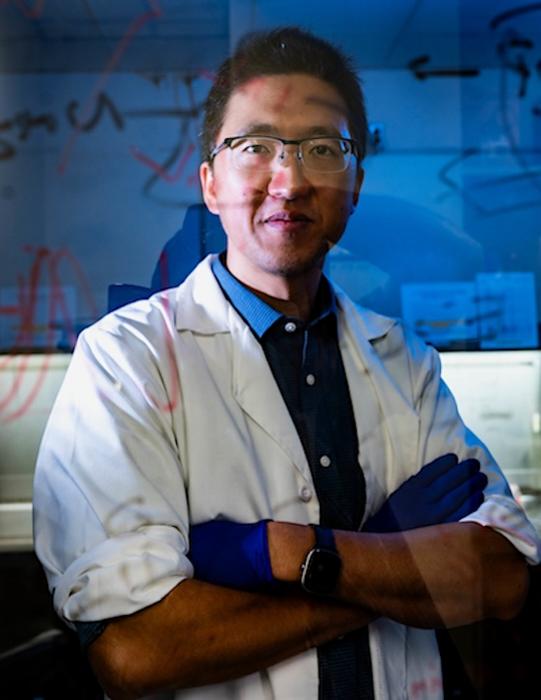Rice University chemist Han Xiao has been awarded nearly $2 million from the National Institutes of Health Maximizing Investigators’ Research Award (MIRA) program for established investigators.

Credit: Photo by Jeff Fitlow/Rice University.
Rice University chemist Han Xiao has been awarded nearly $2 million from the National Institutes of Health Maximizing Investigators’ Research Award (MIRA) program for established investigators.
All organisms with few exceptions use 20 standard amino acids to build proteins. Xiao’s research aims to reprogram the genetic code to precisely manipulate biological systems by using noncanonical amino acids (ncAAs) with diverse properties to help build proteins. Researchers generally use ncAAs to investigate the structure and dynamics of proteins, but Xiao wants to take that a step further.
“This innovative approach could revolutionize how we understand and control cellular functions,” said Xiao, the Norman Hackerman-Welch Young Investigator, associate professor of chemistry, director of Rice’s Synthesis X Center and a Cancer Prevention & Research Institute of Texas Scholar.
Xiao will use the five-year grant to develop innovative cells capable of biosynthesizing and utilizing ncAAs and to explore their potential as in vivo sensors for enzymes involved in posttranslational modifications (PTMs).
PTMs are essential for regulating cell biology. The enzymes that add and remove PTMs, known as “writers” and “erasers,” play major roles in causing various diseases, including cancer and neurological disorders.
Current methods for detecting these enzyme activities, such as fluorescence analysis, western blot and mass spectrometry, are limited to laboratory settings. Xiao’s research seeks to develop ways to monitor these activities within living organisms.
“Our goal is to create eukaryotic cells that can produce proteins with PTM handles, enabling real-time monitoring of enzyme activities,” Xiao said.
These engineered cells could pave the way for new strategies in treating diseases by providing valuable insights into the effectiveness of epigenetic inhibitors in live subjects.
MIRA supports research in an investigator’s laboratory that falls within the mission of the National Institute of General Medical Sciences (NIGMS). The goal of MIRA is to increase the efficiency of NIGMS funding by providing investigators with greater stability and flexibility, thereby enhancing scientific productivity and the chances for important breakthroughs.




